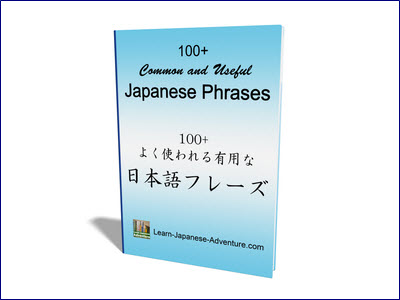- Home
- Learn Japanese Language FAQ
- How exactly do you understand what japanese letters make up what words?
How exactly do you understand what japanese letters make up what words?
by Travis Ray Hernden
(Michigan USA)

How exactly do you Understand what Japanese Letters make up what Words?
Hello, I just wanted to ask you how exactly do people understand what words translate from japanese to english or english to japanese like what I'm saying is this I just got done understand every single letter and symbol (except for Kanji).
Now the part I'm stuck on is how exactly do people know what japanese letters translate to what words so I know how to write the letters and symbols.
But if you asked someone what do certain words translate out to be how exactly did that person get the words he did?
Like for example If I wrote a bunch of letters in japanese how exactly would I know what those words translate out to be just by looking at the symbols and letters thanks :D
Also, if I wrote a lot of japanese letters into sentences how would I know what words translated into what?
I guess all together I'm asking how exactly do you go from japanese letters to words.
Reply:
Hi Travis,
I think someone asked a similar question and I have answered it over here. I will also try to reply your question in your perspective.
You mentioned that you understood every single letter and symbol (except for kanji). I assume that you are referring to hiragana and katakana.
However, knowing every hiragana and katakana are not enough. You need to know how Japanese words are formed with the combination of few hiragana, how foreign words are borrowed to form words using katakana, how hiragana is used as particle in a sentence, etc.
It's just like you only know all the English alphabet. However, if you don't know how to form words using the abc, they're useless.
Take a look at this page where there are many Japanese words and vocabulary available. You can then see how different combinations of Japanese words are formed.
A typical Japanese sentence is formed by using 3 sets of characters: hiragana, katakana and kanji.
hiragana is normally used for the grammar, the connection between words, the particles, etc.
katakana is mainly used to express foreign words, foreign names, foreign countries and things that "loaned" from foreign languages.
kanji can be formed by using hiragana
Although it's possible to write the whole sentence in hiragana, it'll become lengthy and very difficult to comprehend.
That is because there are many Japanese words which have the same pronunciation but totally different meanings. It will make you wonder which word the sentence is referring to without looking into the context.
For example, the following sentence is written totally in hiragana.
きのうはあめりかからのともだちとごはんをたべました。
Although it's still possible to understand the sentence after reading it carefully, you will find it difficult to figure out which few of the hiragana formed a word without reading a few times. Moreover, you may mix up the particles and other Japanese words.
If you make use of kanji and katakana, the whole sentence becomes shorter (since one kanji can represent a few hiragana), thus making it easier for you to understand the content. By looking at the kanji, you instantly know which Japanese word the sentence is referring to, and this saves you a lot of time.
昨日はアメリカからの友達とご飯を食べました。
kinou wa amerika kara no tomodachi to gohan wo tabemashita
Meaning: I have a meal with a friend from America yesterday.
From the above sentence, you will know that the katakana アメリカ means America and will not mix up with the particle から (kara) that follow it. The kanji 昨日 (kinou) let you know it's referring to yesterday instantly. The verb 食べました (tabemashita) contains the kanji 食 (shoku), you will know that it's referring to eating.
In summary, you need to understand how Japanese words are formed with hiragana, katakana and kanji, how they are combined to form Japanese sentences, before you can understand what words translate from Japanese to English.
Moreover, the sentence structures of Japanese and English are so different that it's not so straight forward for Japanese to English translation.
I hope I have answered your question. If you think you need more explanation, please let me know. You can use the comment function at the bottom of this page.
Hope this helps,
Kia Leng
Comments for How exactly do you understand what japanese letters make up what words?
|
||
|
||
|
||
|
||
|
||
|
||
|
||
|
||
|
||
|
||
|
||
|
||
|
||
|
||
|
||
|
||
|
||
|
||
|
||
|
||
|
||
|
||
|
||
|
||
|
||
|
||
|
||
|
||
|
||








